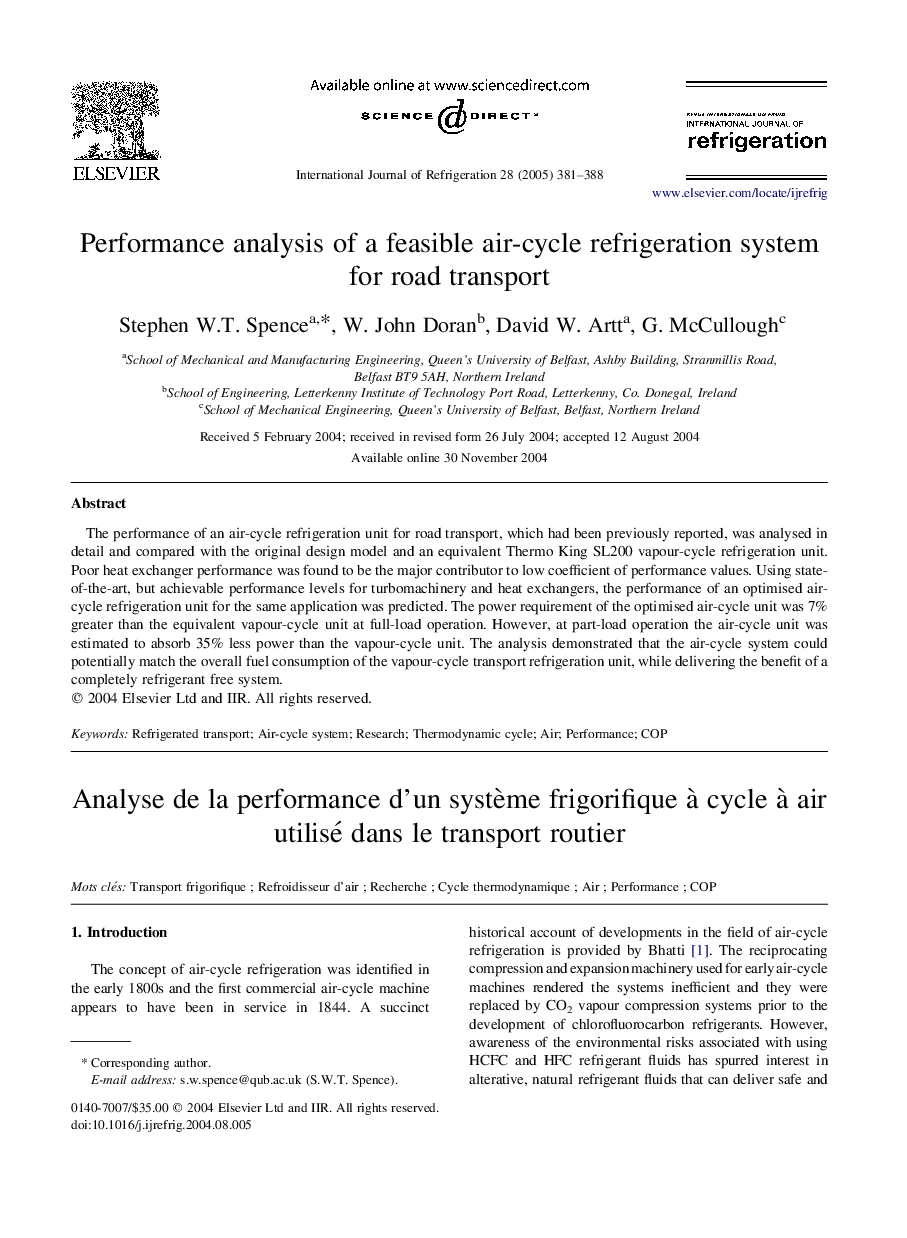| Article ID | Journal | Published Year | Pages | File Type |
|---|---|---|---|---|
| 9708228 | International Journal of Refrigeration | 2005 | 8 Pages |
Abstract
The performance of an air-cycle refrigeration unit for road transport, which had been previously reported, was analysed in detail and compared with the original design model and an equivalent Thermo King SL200 vapour-cycle refrigeration unit. Poor heat exchanger performance was found to be the major contributor to low coefficient of performance values. Using state-of-the-art, but achievable performance levels for turbomachinery and heat exchangers, the performance of an optimised air-cycle refrigeration unit for the same application was predicted. The power requirement of the optimised air-cycle unit was 7% greater than the equivalent vapour-cycle unit at full-load operation. However, at part-load operation the air-cycle unit was estimated to absorb 35% less power than the vapour-cycle unit. The analysis demonstrated that the air-cycle system could potentially match the overall fuel consumption of the vapour-cycle transport refrigeration unit, while delivering the benefit of a completely refrigerant free system.
Related Topics
Physical Sciences and Engineering
Engineering
Mechanical Engineering
Authors
Stephen W.T. Spence, W. John Doran, David W. Artt, G. McCullough,
